第76章
Once more the doctor moved toward the riffle. He had done the thing before and he was not to be beaten now. As the eddy bore him toward the swift water again he carefully gauged the angle of attack, so that when the nose of the canoe entered the riffle, with the trick that all canoemen know, he held her up firm against the water, and, with no very great effort, but by skilful manipulations of the force of the current, he shoved her gradually across the riffle into the slow water near the farther bank, and with a triumphant wave of the paddle disappeared around the bend.
"He's good man," said Duprez to Ben Fallows, who had taken all this time to recover from the shock of Barney's sudden appearance. "But de preechere, he's go hup dat rapide lak one oiseau las' night."
"Did, eh?" answered Ben. "Well, he didn't put in three summers on the Mattawa fer nothin'. He's a bird in the canoe, an' so's his bro--that is--the doctor there. Wonder if he'll catch him!" Ben was much excited.
"Mebbe. He's cache heem comin' down, for sure!"
Meanwhile the doctor paddled on with steady, swinging stroke, taking advantage of every eddy and cross current, stealing along the bank under the overhanging trees, sidling across swift water, lifting his canoe over rocky bits, till near mid-day he found himself at the portage below the Long Rapid.
"Guess I'll camp on the other side," he said, talking aloud after the manner of men who live much alone. He adjusted his paddles on the thwarts, hooked his tea pail to his belt, shouldered his canoe, and, taking his blanket pack in his hand, made the half mile portage without a "set down."
"There," he said, setting his canoe carefully on the grass, "my legs are better than my arms. Now we'll grub." He unpacked his tea pail, cut his bacon into strips preparatory to toasting, built a fire, drew a pail of water, threw in a handful of tea, swung it by a poplar sapling over the fire, and sat down to toast his bacon.
In fifteen minutes his meal was ready--such a meal as can be had only in the mountains under the open sky and at the end of a ten-mile paddle against the stream of the Big Horn. After dinner he lit his pipe and stretched himself in the warm spring sun for half an hour's quiet think. The old restlessness was coming back upon him. His work as Medical Superintendent of the railway construction was practically completed. The medical department was thoroughly organized and the fight with disease and dirt was pretty much over so far as he was concerned. And with the easing of the strain there came fiercely upon him the soul fever that had for the last three years driven him from land to land. Had it not been that his professional honour demanded that he should hold his post and do his work, he had long ago left a district where he was kept constantly in mind of what he had so resolutely striven to forget. By the exercise of the most assiduous care he had prevented a meeting with his brother during the last three months. But in this he could not hope to be successful much longer. Before his second pipe was smoked he had reached his resolve. "I'll pull out of this," he said, "once this Big Horn camp is cleaned up."
He packed his kit, carefully extinguished his fire, the mark of a right woodsman, slipped his canoe into the water, and set off again. His meeting with Ben Fallows seemed somehow to have brought his brother near him to-day. Everything was eloquent of those days they had spent together on the upper reaches of the Ottawa. The flowing river, the open sky, the wood, the fresh air, and, most of all, the slipping canoe spoke to him of Dick. The fierce resentment, the bitter sense of loss, that had been as a festering in his heart these years, seemed somehow to-day to have lost their stinging pain. With every lift of the paddle, with every deep breath of the fragrant spring air, with every slip of the canoe, the buoyant gladness of those old canoeing days came swelling into his heart, and ere he knew he caught himself singing, to the rhythmic swing of paddle and shoulders, the old Habitant canoe song:
"En roulant ma boule roulant."
As often as he found his body swinging to the song, so often did he sternly check himself and resolutely set another air going in his head, only to find himself in a short space swinging along again to the old song to which he and his brother had so often made their canoe slip in those great days that now seemed so far away.
"En roulant ma boule," sang his paddle in spite of all he could do. He could hear Dick's clear tenor from the bow. "Here, confound it! Quit it, I say!" he said aloud savagely.
"En roulant ma boule roulant," in a clear strong voice came the old song from around the bend.
The doctor almost dropped his paddle into the stream.
"Heavens above!" he muttered. "What's that? Who's that?"
"Visa la noir, tua le blanc, Rouli roulant, ma boule roulant," sang the voice. There was only one who could sing that verse just that way. With two swift heaves of the paddle he lifted his canoe into the overhanging bushes, noiselessly leaped ashore, and pulled his canoe up the bank after him. Down the river still came the song, and ever nearer.
"O fils du roi tu es mechant, En roulant ma boule."